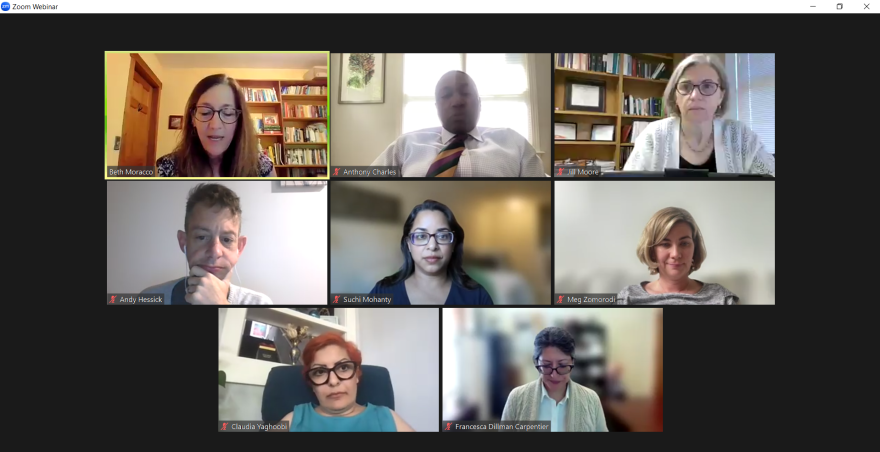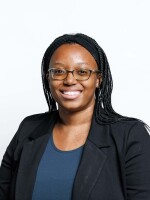UNC-Chapel Hill faculty leaders want better communication from administrators and protections for students following a tumultuous day of protest and arrests.
About 10 members of the UNC-Chapel Faculty Executive Committee met in an emergency meeting on Wednesday, a day after police detained 36 people, including 10 UNC Chapel Hill students, during a “Triangle Gaza Solidarity” encampment and protest. Six people were arrested.
FEC Chair Beth Moracco said she’s received dozens of messages from colleagues, some supporting the student protestors and others supporting the university administration’s response. She said the purpose of the meeting was for faculty to “identify points of agreement.”
“It’s clear that we as faculty are not of one mind about many different aspects of the events over the past days,” Moracco said. “That’s part of what makes it important for us to identify where we do have shared values.”
Some faculty members said the committee needs to create a list of resources students and faculty members can access. Suchi Mohanty, head of the undergraduate library, and Claudia Yaghoobi, professor of Persian Studies, noted a specific need for resources for students and faculty who either participated or were arrested during the protests.
“Protecting our students is our first job, both for faculty and admin,” Yaghoobi said. “No matter where the students stand politically.”
Faculty also asked about protections for students to express their political views.
Moracco said faculty have come to her with concerns about the university’s police presence.
“(Concerns about) the importance of freedom of expression and the balance between that and safety,” Moracco said. “How can we make sure that it doesn't get to the point where it got?”
Local elected officials in Chapel Hill and Carrboro also expressed concerns over police escalation. On Wednesday, a group of eight Chapel Hill Town Council members released a statement that said the university administration’s decision to bring police to the protest was an “overreaction” and created “an environment that inevitably resulted in an escalation of force, including the use of pepper spray against its own students.”
Neither Chapel Hill nor Carrboro police were involved in the Polk Place protests and arrests.
Anthony Charles, a UNC FEC member, said he too questioned interim Chancellor Lee Roberts’ decision-making process.
“It was not a very good look for the interim chancellor to be standing on the steps of the South Building with armed guards right next to him,” Charles said. “It made the situation look a lot worse.”
Francesca Dillman Carpentier said she thinks administration needs to be held accountable “for the harm that was done to students” and come up with a “plan of action” for future protests.
Moracco said some faculty also have a lack of trust in communication from the university. Many committee members said they had received little information about the protest and campus operations.
Faculty member Andy Hessick was in Australia during the protests.
“I have no information coming to me because I’m not there,” Hessick said. “I know much more about UCLA and Columbia than I do about UNC right now.”
The committee plans to share these communication concerns with university administration, as well as gather questions from faculty about future protest protocols.


